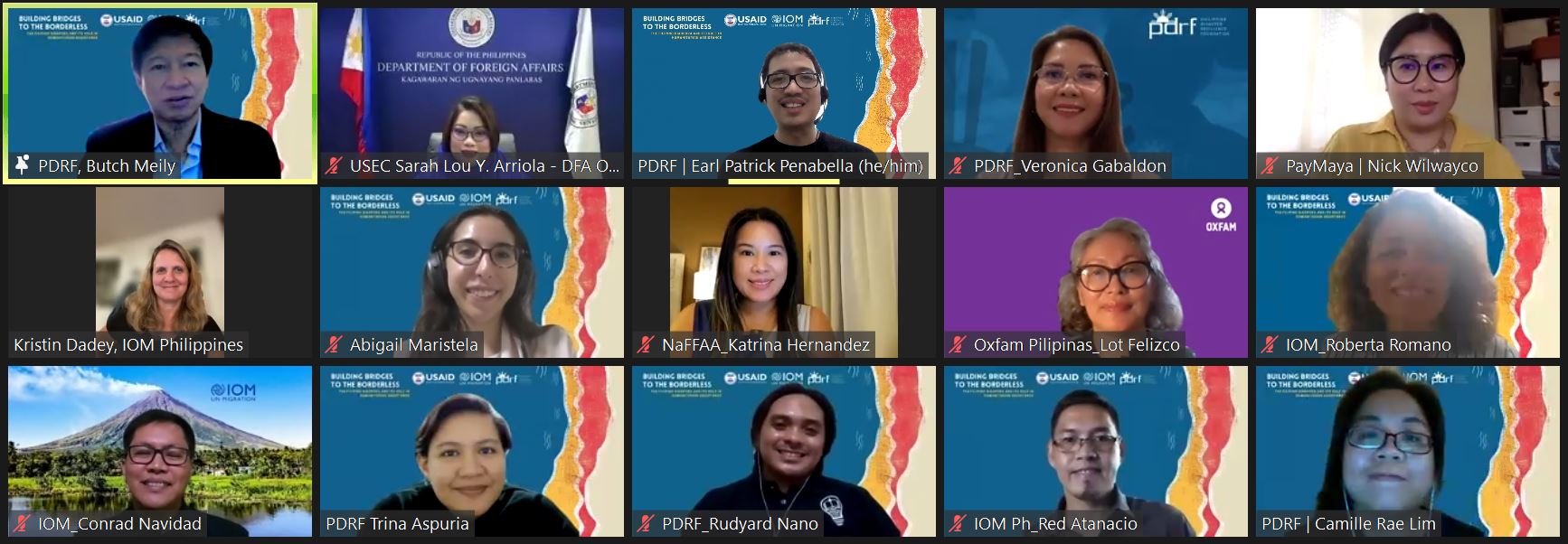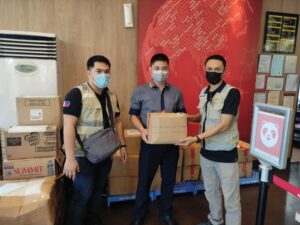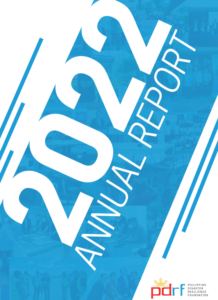Just ahead of World Humanitarian Day, 19 August 2021, the International Organization for Migration (IOM) Philippines hosted an interactive webinar, “Building Bridges to the Borderless: The Filipino Diaspora and its Role in Humanitarian Assistance” in partnership with the Philippine government, civil society organizations, diaspora groups, the private sector and other United Nations (UN) organizations.
The webinar explored the strengths and opportunities of working with Filipino diaspora communities in enhancing and optimizing humanitarian assistance during times of crisis. As climate change continues to greatly impact the Philippines, humanitarian crises are more present than ever before. In 2020 alone, the Philippines experienced three super typhoons which displaced more than one million Filipinos and left thousands in need of assistance.
In addition to climate change, COVID-19 continues to wreak havoc all around the world. With all these crises, there is growing pressure to rely on diaspora communities to enhance relief efforts in complex humanitarian crises. The Filipino diaspora, a group usually associated with migrants or descendants of migrants, are crucial to humanitarian operations here in the Philippines. With more than 10 million Filipinos[1] currently living abroad, they are well-placed to extend a helping hand during any emergencies at home.
“Diaspora communities bring critical life-saving resources, skills, local knowledge and networks that greatly contribute to the recovery efforts as well as building the resilience of affected populations. Undoubtedly, the Filipino diaspora greatly enhance the humanitarian response in often uncertain and insecure environments as we have seen with the COVID-19 pandemic,” said Kristin Dadey, IOM Philippines Chief of Mission.
The webinar, organized by IOM with the Philippine Disaster Resilience Foundation (PDRF) and funded by the United States Agency for International Development (USAID), enables stakeholders to better leverage the efforts of diaspora communities and their positive contribution in humanitarian assistance.
Experts from the Department of Foreign Affairs (DFA), the National Federation of Filipino American Associations (NaFFAA), Oxfam Pilipinas, and PayMaya Philippines shared their experiences in engaging with diaspora groups in different humanitarian actions, highlighting the lessons learned and best practices by the Filipino diaspora drawn from recent disasters.
“The Philippines is truly a global nation. With advances in technology, we can connect in ways we could never do before. As we deal with more disasters and consequences brought by COVID-19, it is critical for us to build the bridges between our communities as well as other diaspora groups,” said Rene Butch Meily, President of PDRF.
The event opened potential venues for further engagement and enhanced coordination in the Philippine context, paving a way for adaptation of the global Framework on Diaspora Engagement in Humanitarian Assistance. (UNIC Manila Kristin Dadey, IOM Philippines Chief of Mission, kdadey@iom.int)



